How London's Victorian fountains are springing back
- Published
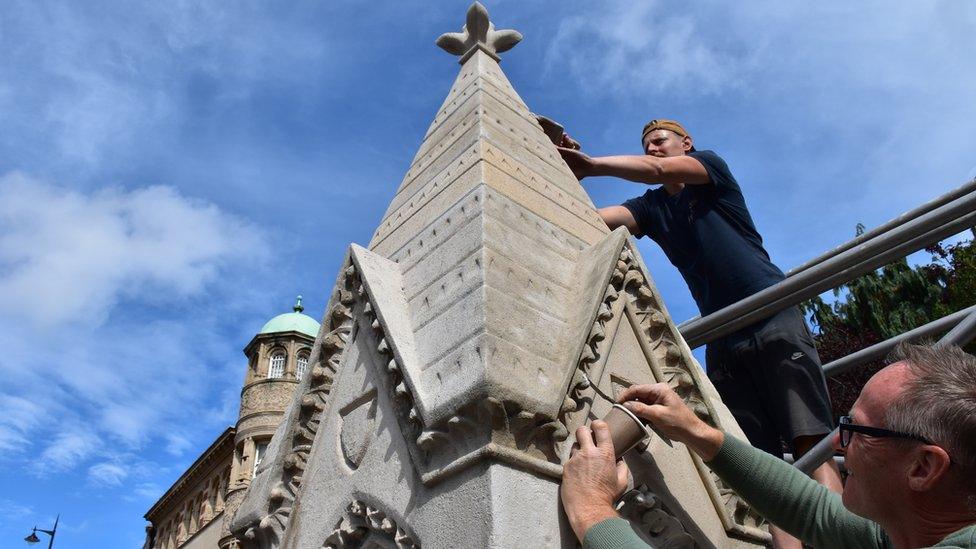
Heritage of London Trust's campaign to restore the city's historical drinking fountains has seen eight complete restorations so far
Victorian-era drinking fountains are being restored in a London-wide campaign as figures show 79% of Londoners want more access to free water refill stations.
Ocean Bottle's survey also showed 71% of people in the capital can go a full day without seeing a drinking fountain.
Heritage of London Trust (HOLT) hopes its campaign will help reduce the city's plastic pollution.
The fountains are a "beacon in the landscape", HOLT's Nicola Stacey said.
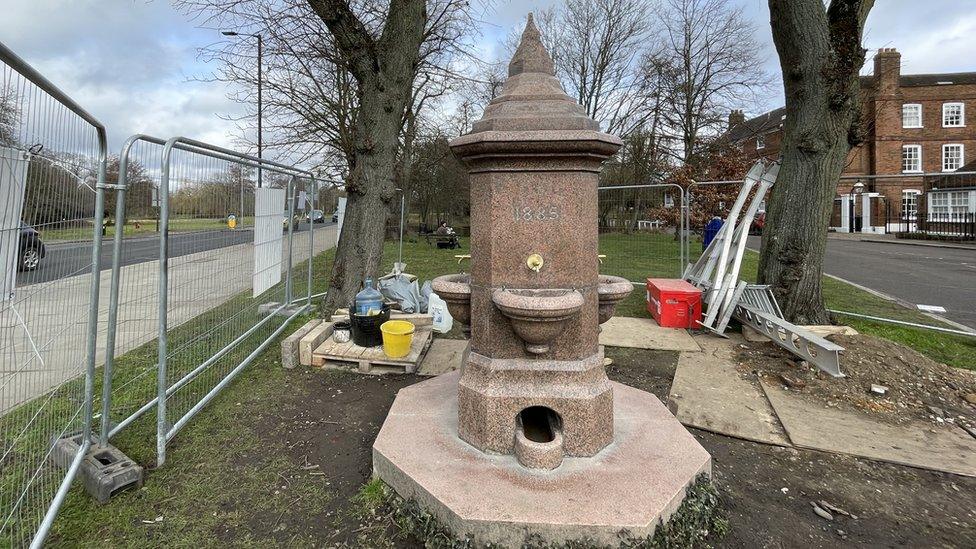
An old drinking fountain at Hadley Green in Barnet is the latest under restoration
There used to be about 1,000 fountain in the capital, but now there are about 100 after many were switched off in the 1970s and 1980s, according to the charity.
The campaign has been running over the past five years, and has recently ramped up, with the charity saying 12 more restorations are likely to start in the next six months.
About £30,000 has been spent on the latest project in the campaign, Barnet's drinking fountain in Hadley Green.
Half of it was donated by HOLT, and the local community also raised funds.
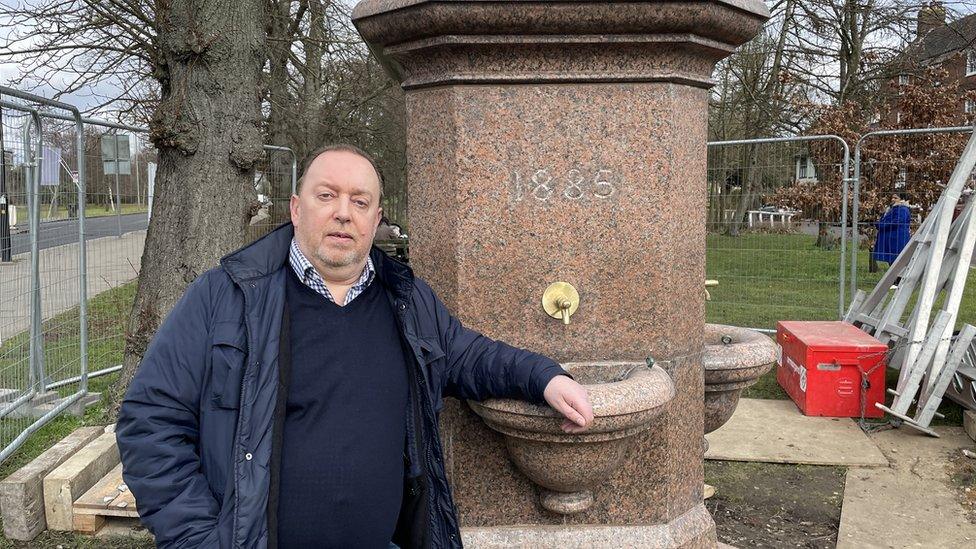
Peter Wanders said local people had told him restoring the fountain to be working again was a "fabulous thing"
One of the fundraisers was local resident and retailer Peter Wanders, who said the area "desperately needed" a "good working fountain".
"I've been working here now almost 37 years and I pass the fountain every day and wished it was working," he said.
Mr Wanders said he thought the capital's historical fountains were "tremendously relevant".
"It's all the way round London they're not being used and they should be."

A network of new drinking fountains has been installed across the capital as part of a partnership between the mayor of London and Thames Water
A survey by Keep Britain Tidy in 2018 of 2,138 people revealed that 9% of respondents said they used public drinking fountains or taps.
The mayor of London has partnered with Thames Water to install 110 public fountains over the past three years to "support Londoners to switch to refillable water bottles", a spokesperson for the mayor said.
The average Londoner buys three plastic water bottles each week, amounting to 175 bottles each year, according to the London Assembly.
The spokesperson said installing new drinking fountains was "more cost effective" than restoring London's historical ones.
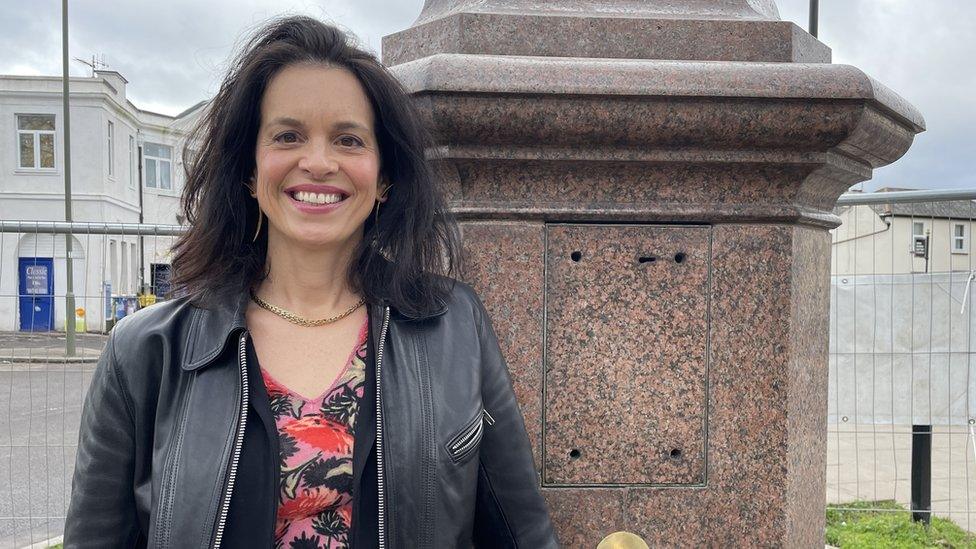
Dr Nicola Stacey said the restored drinking fountains were a "win for everybody"
HOLT director Dr Stacey said the restoration of London's Victorian fountains had a "massive ripple" that was "positive to the local community".
"They reduce single-use plastic, they nearly always have amazing histories individually, they inspire local people with the history of their local area," she said.
"There's no question, people are attracted to these things [...] it has real impact and it really inspires people to be a part of it."

Follow BBC London on Facebook, external, Twitter , externaland Instagram, external. Send your story ideas to hellobbclondon@bbc.co.uk
- Published2 June 2018
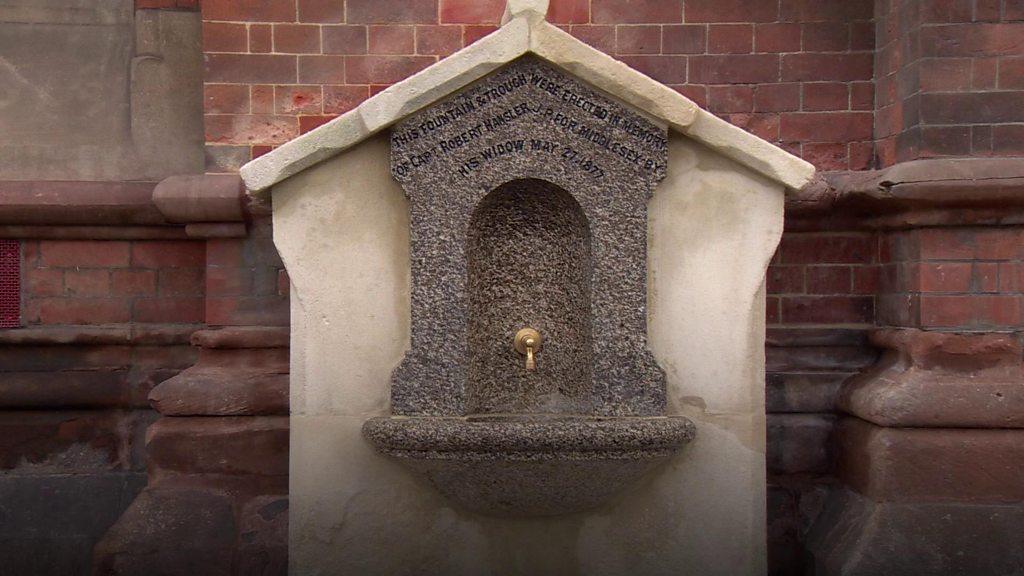
- Published25 March 2018
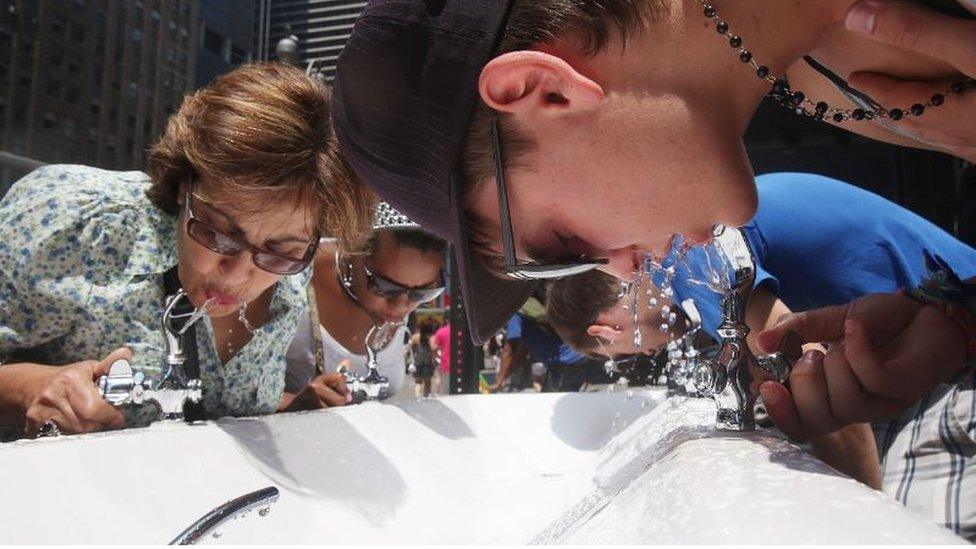
- Published4 December 2017
